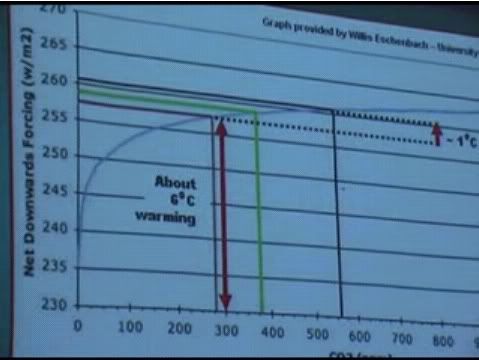The most commonly cited study by skeptics is a study by scientists from Finland and Germany that finds the sun has been more active in the last 60 years than anytime in the past 1150 years (Usoskin 2005). They also found temperatures closely correlate to solar activity.
However, a crucial finding of the study was the correlation between solar activity and temperature ended around 1975. At that point, temperatures rose while solar activity stayed level. This led them to conclude "during these last 30 years the solar total irradiance, solar UV irradiance and cosmic ray flux has not shown any significant secular trend, so that at least this most recent warming episode must have another source."
You read that right. The study most quoted by skeptics actually concluded the sun can't be causing global warming. Ironically, it's the sun's close correlation with Earth's temperature in the past that proves it has little to do with the last 30 years of global warming.
This conclusion is confirmed by many studies quantifying the amount of solar influence in recent global warming:
* Ammann 2007: "Although solar and volcanic effects appear to dominate most of the slow climate variations within the past thousand years, the impacts of greenhouse gases have dominated since the second half of the last century."
* Lockwood 2007 concludes "the observed rapid rise in global mean temperatures seen after 1985 cannot be ascribed to solar variability, whichever of the mechanism is invoked and no matter how much the solar variation is amplified."
* Foukal 2006 concludes "The variations measured from spacecraft since 1978 are too small to have contributed appreciably to accelerated global warming over the past 30 years."
* Scafetta 2006 says "since 1975 global warming has occurred much faster than could be reasonably expected from the sun alone."
* Usoskin 2005 conclude "during these last 30 years the solar total irradiance, solar UV irradiance and cosmic ray flux has not shown any significant secular trend, so that at least this most recent warming episode must have another source."
* Haigh 2003 says "Observational data suggest that the Sun has influenced temperatures on decadal, centennial and millennial time-scales, but radiative forcing considerations and the results of energy-balance models and general circulation models suggest that the warming during the latter part of the 20th century cannot be ascribed entirely to solar effects."
* Stott 2003 increased climate model sensitivity to solar forcing and still found "most warming over the last 50 yr is likely to have been caused by increases in greenhouse gases."
* Solanki 2003 concludes "the Sun has contributed less than 30% of the global warming since 1970".
* Lean 1999 concludes "it is unlikely that Sun–climate relationships can account for much of the warming since 1970".
* Waple 1999 finds "little evidence to suggest that changes in irradiance are having a large impact on the current warming trend."
* Frolich 1998 concludes "solar radiative output trends contributed little of the 0.2°C increase in the global mean surface temperature in the past decade"



 Reply With Quote
Reply With Quote













